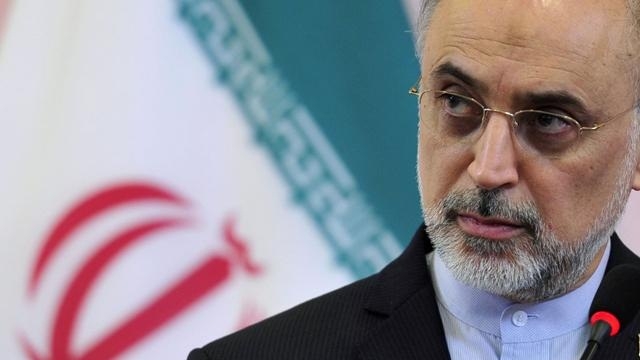Iran has appealed to the West over the July 2015 nuclear deal, calling for a renewed commitment from the US and European countries because “engagement is not a one-way street”.
Ali Akbar Salehi, a former Foreign Minister who led Iran’s technical team in the talks with the 5+1 Powers, used London’s Guardian newspaper for the message.
Salehi called on “all actors” to return to engagement — the hallmark foreign policy of the Rouhani Government — but immediately focused his attention on the US and Saudi Arabia:
Pursuing military power beyond what is called for by actual security needs raises suspicions among others and risks destabilisation. For example, US arms sales to some traditional regional clients in the Middle East, and ostentatious, lavish arms purchases by the same regional actors just because of the abundance of oil wealth, are provocative.
He then implied that the US-Saudi threat, with the announcement of $110 billion in arms sales from Washington during Donald Trump’s visit to Riyadh in late May, is buttressed by unjust sanctions over Iran’s ballistic missile testing: “This is especially the case if the national defence efforts of Iran – which are partly induced by this process – are simultaneously opposed and undermined.”
Salehi also gave a one-way view of the escalation in propaganda and rhetoric this spring. Ignoring the surge in hostile statements, including by the Supreme Leader, against a supposed US-Israeli-Saudi plot to destroy the Islamic Republic, the former Foreign Minister asserted:
Alternative facts are bound to create unnecessary crises, and they also render positive, effective engagement impossible. Ideas such as the “clash of civilisations”, “Sunni-Shia conflict”, “Persian-Arab enmity” and the “Arab-Israeli axis against Iran” are all examples of alternative realities fabricated for ulterior purposes.
Salehi concluded:
Having, on behalf of Iran, conducted the technical part of the JCPOA [nuclear agreement] with the P5+1 countries, I can say with certainty that the fate of this hard-won deal depends, in the final analysis, on western resolve and adherence to the principles just mentioned. Disregard for Iran’s genuine security concerns, either through deliberate changing of the military-security balance in the region, or by stoking Iranophobia in the region and beyond, would jeopardise engagement.

